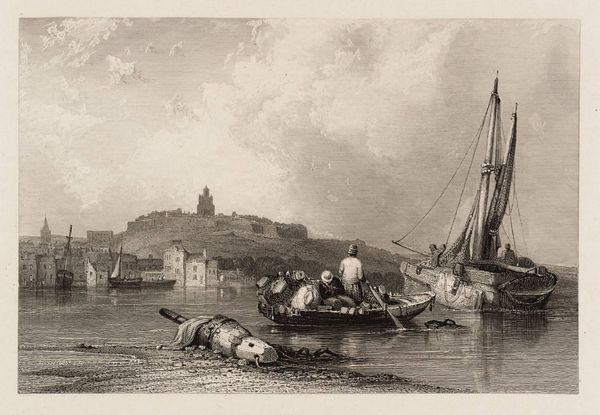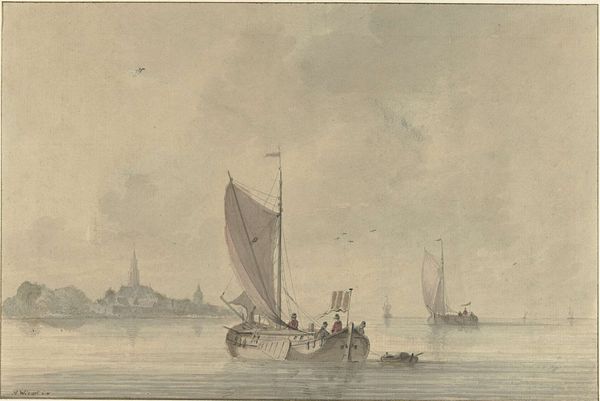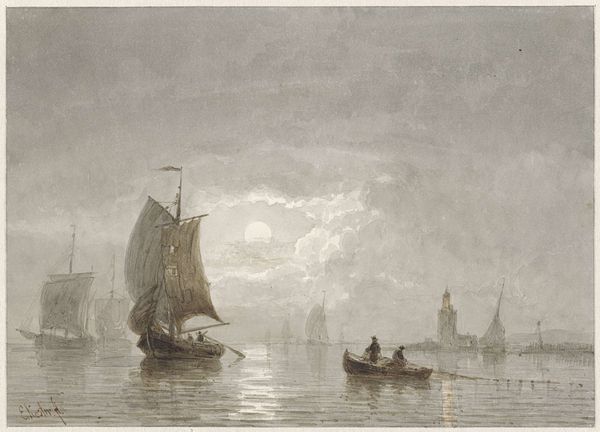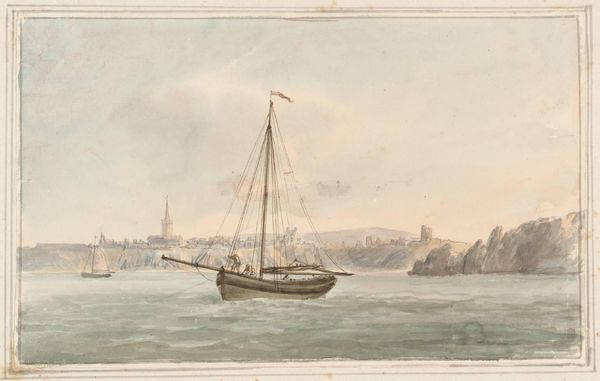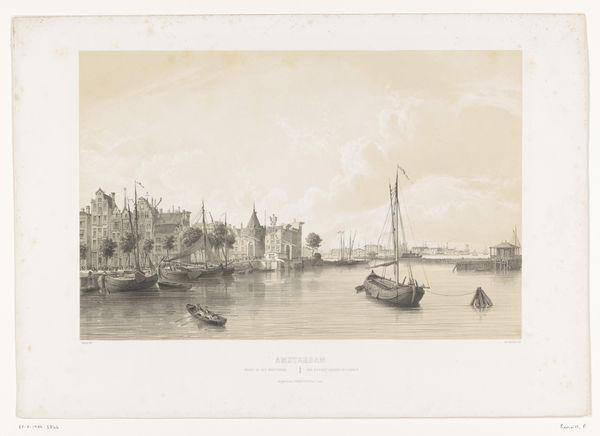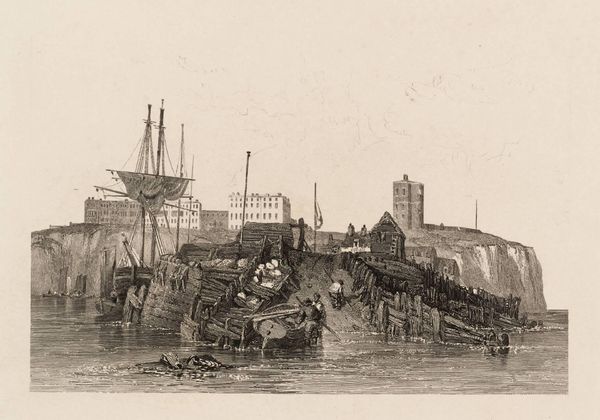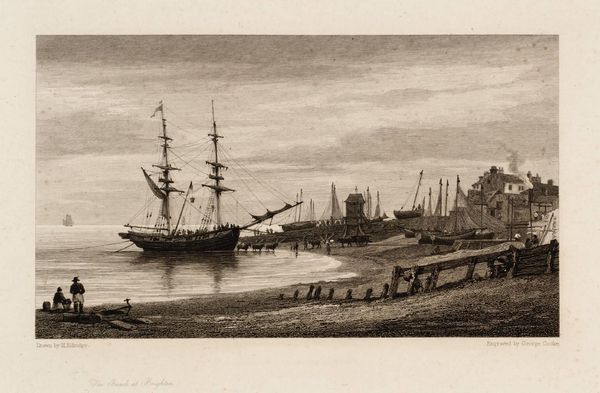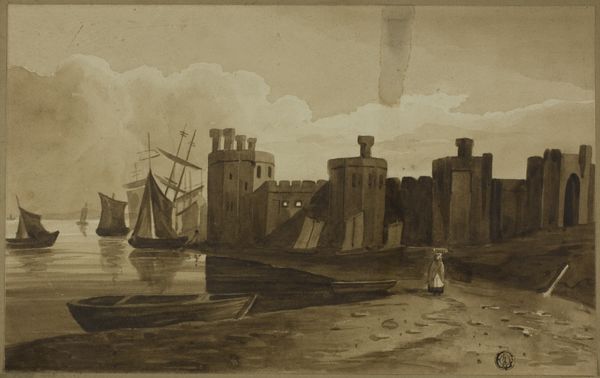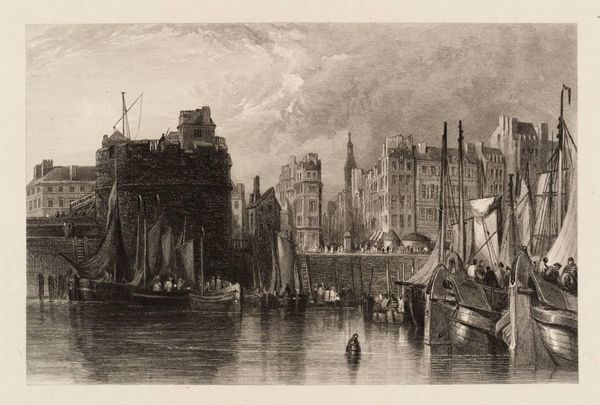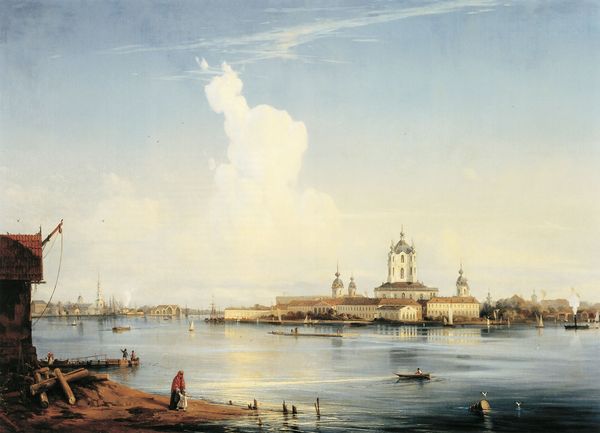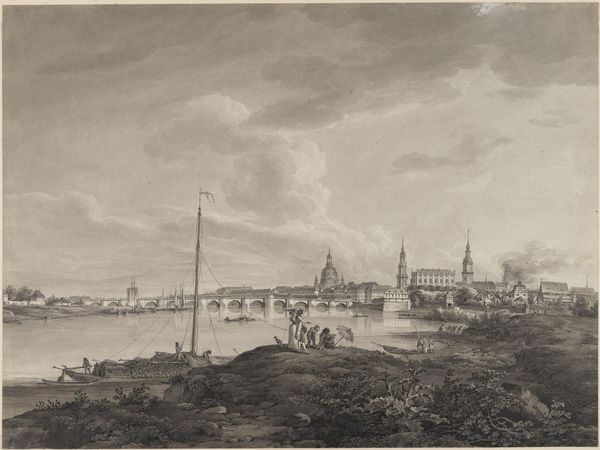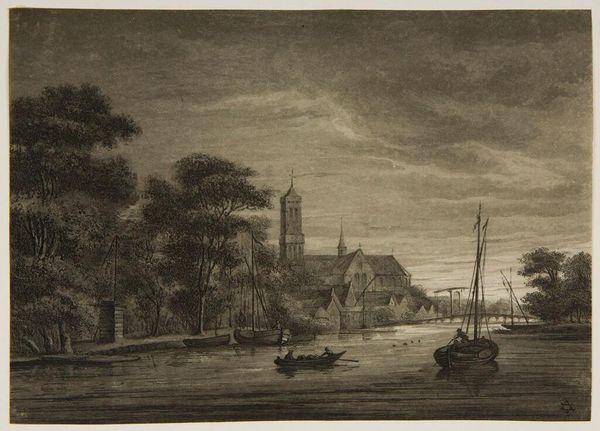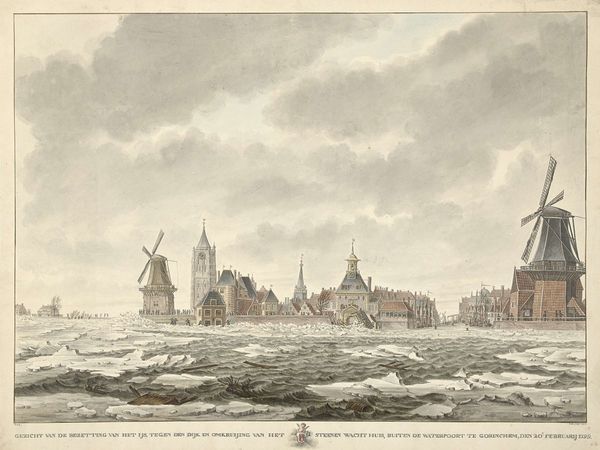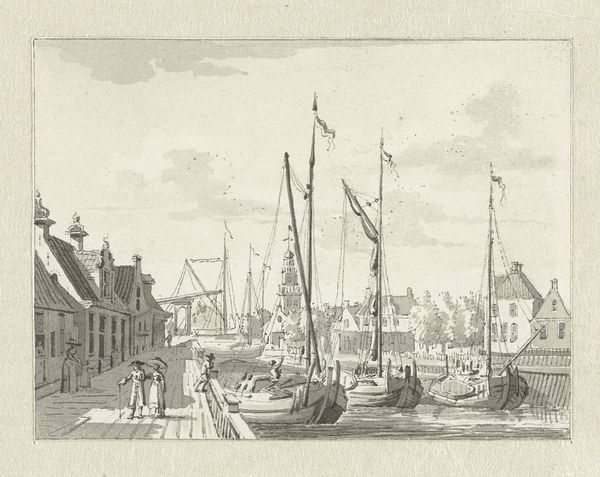
drawing, paper, ink
#
drawing
#
landscape
#
charcoal drawing
#
paper
#
historical photography
#
ink
#
romanticism
#
19th century
#
cityscape
Dimensions: height 245 mm, width 350 mm
Copyright: Rijks Museum: Open Domain
Théodore Gudin captured this view of Amsterdam and the Round Lutheran Church in a sepia watercolor. The dome, a symbol of power and divinity, anchors the composition, its form echoing through centuries. The dome itself is a motif stretching back to antiquity. Think of the Pantheon in Rome, its oculus open to the heavens, or the Hagia Sophia in Constantinople, where the dome symbolized the cosmos. Here, it marks the Lutheran Church, a place of worship. Yet, like the ever-changing sea, symbols shift and evolve. The dome, once reserved for sacred spaces, appears later in secular architecture, signifying civic pride and authority. In Gudin's rendition, the dome seems almost to breathe, reminding us that symbols are never static. They are vessels carrying echoes of the past, always finding new resonances in the present. This image resonates in the collective memory, engaging us on a deep, almost subconscious level. The dome has resurfaced, evolved, and continues to take on new meanings in different historical contexts.
Comments
No comments
Be the first to comment and join the conversation on the ultimate creative platform.
